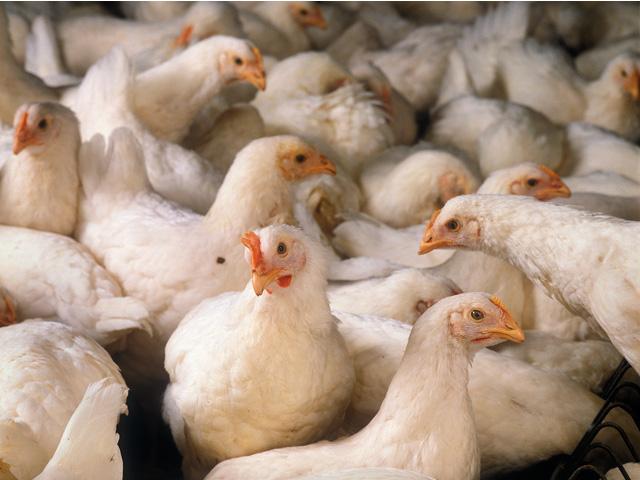Lawsuit Alleges Worker Danger
Poultry Plant Workers Union Points to USDA Line Speed Waivers as COVID-19 Risk
OMAHA (DTN) -- As meatpacking and poultry plants have been forced to remain open during the COVID-19 pandemic, a USDA waiver program implemented in 2018 allowing poultry plants to operate at higher line speeds is putting workers in jeopardy, a new lawsuit filed in federal appeals court Tuesday alleges.
In 2014, FSIS adopted a regulation limiting line speeds to 140 birds per minute (bpm). In 2018, USDA's Food Safety and Inspection Service (FSIS) launched a waiver program for poultry processors, allowing waiver recipients to step up line speeds from 140 to 175 bpm.
The United Food and Commercial Workers International Union has asked the U.S. Court of Appeals for the District of Columbia Circuit to set aside the waiver program and the waivers granted at 10 poultry plants where the plaintiff's members work.
"America's poultry workers have been on the frontlines of this pandemic since day one, putting themselves in harm's way to make sure our families have the food we need during this crisis," UFCW International President Marc Perrone said in a statement.
"As COVID-19 continues to infect thousands of meatpacking workers, it is stunning that USDA is further endangering these workers by allowing poultry companies to increase line speeds to dangerous new levels that increase the risk of injury and make social distancing next to impossible."
According to UFCW, April saw the biggest spike in new COVID-19 meatpacking cases with 8,632 workers infected or exposed. May was the deadliest month for the industry with 38 worker deaths.
The five local union plaintiffs in the lawsuit represent about 35,000 workers at processing plants in Alabama, Arkansas, Kentucky, Indiana, Mississippi and Missouri.
P[L1] D[0x0] M[300x250] OOP[F] ADUNIT[] T[]
The lawsuit alleges FSIS adopted the waiver program "without using procedures required by the APA (Administrative Procedure Act) and the program is arbitrary and capricious."
The groups said when FSIS issued the 2014 regulation, it considered "an extensive rulemaking record demonstrating the harms that faster line speeds can cause poultry workers.
"On the basis of that rulemaking record, FSIS abandoned a proposal to allow poultry processing plants to operate at a maximum line speed of 175 birds per minute, instead capping the maximum line speed at 140 bpm and adopting other regulations designed to protect worker safety at poultry processing plants.
"With its new waiver program, FSIS reversed course, creating a program under which plants can operate at speeds up to 175 bpm."
The lawsuit said the waiver program has permitted nearly 43% of all plants subject to the regulation, to operate at speeds of 175 bpm.
"In adopting the new waiver program, FSIS ignored concerns raised by plaintiff UFCW and others that increasing line speeds at poultry processing plants would increase the risk of injury to workers on the line," the lawsuit said.
"Instead, the agency asserted that it lacked the legal authority to address worker safety concerns, even as it acknowledged that it had considered and addressed worker safety concerns in its 2014 rulemaking."
The lawsuit said line speed has been identified as a contributing factor in "high injury rates" suffered by poultry workers.
In September 2017, the National Chicken Council petitioned FSIS to waive the maximum line speed regulation for new poultry inspection system plants, which house young chicken and turkeys.
On April 24, 2020, FSIS announced as of March 20, 2020, it was no longer accepting applications for waivers under the 2018 waiver program.
To date, FSIS has granted new line-speed waivers to 35 chicken processing plants. In total, 53 of the 124 new poultry inspection system chicken processing plants currently are authorized to operate lines at 175 bpm.
"On information and belief, in granting these line-speed waivers, FSIS did not impose any conditions on plants that address the increased risk to worker safety that would result from an increase in line speed," the lawsuit alleges.
Todd Neeley can be reached at todd.neeley@dtn.com
Follow him on Twitter @toddneeleyDTN
(c) Copyright 2020 DTN, LLC. All rights reserved.




